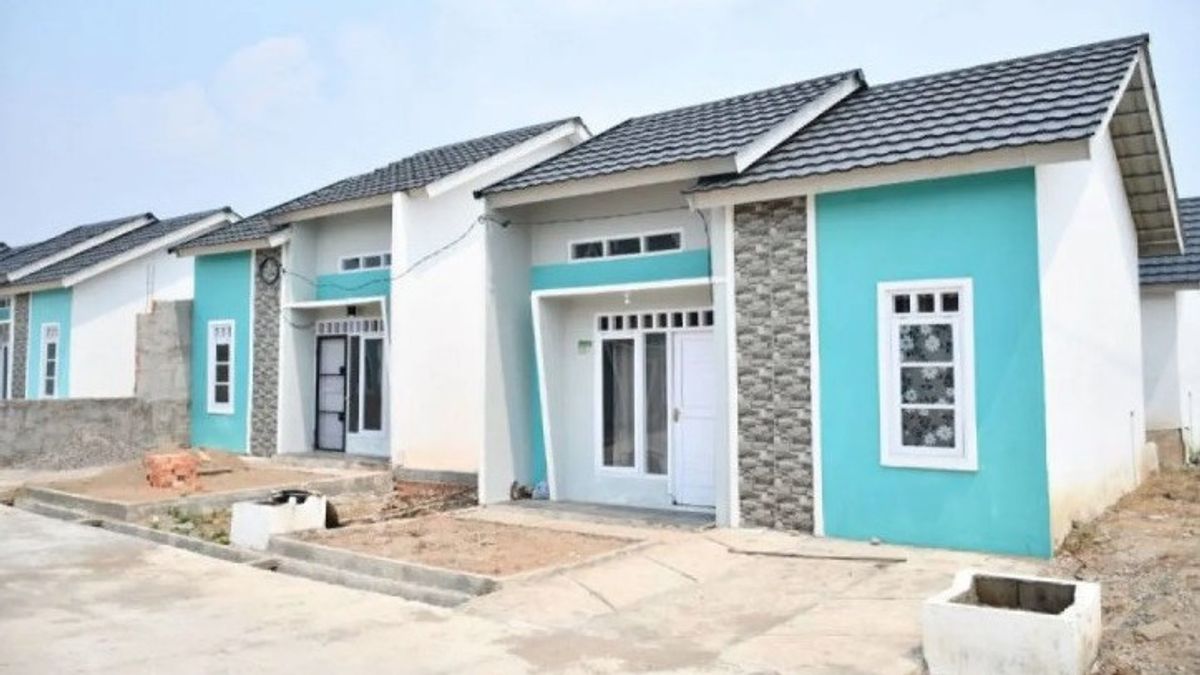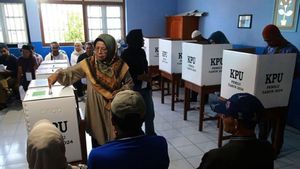JAKARTA The latest government regulation regarding the People's Housing Savings program, abbreviated as Tapera, triggers hot discussions on social media. The workers' net income has the potential to be further eroded due to the addition of cuts with the program.
Both workers, ASN, private workers, and independent workers are preparing with a 3 percent salary cut per month for Tapera deposits. Under the regulations, workers will be subject to a 3 percent salary cut on the 10th of each month for this Tapera savings.
For workers, Tapera deposits will be paid by employers by 0.5 percent and the remaining 2.5 percent of the workers themselves, while independent workers will be fully cut by 3 percent.
This rule is contained in Government Regulation (PP) Number 21 of 2024 concerning Amendments to Government Regulation Number 25 of 2020 concerning the Implementation of Public Housing Savings.
BP Tapera Commissioner Heru Pudyo Nugroho emphasized that this is the government's effort to increase the effectiveness of the implementation of Tapera and accountability in managing Tapera funds.
Funds raised from participants through the percentage of salary deductions or income will be managed by BP Tapera as savings that will be returned to the participants later.
"The funds returned to Tapera participants when their membership period ended are in the form of a number of basic deposits along with the results of the camp," Heru said as quoted from a written statement, Tuesday (28/5/2024).
But the rules regarding Tapera contributions paid with a 3 percent salary cut scheme per month have resulted in rejection in various circles. Masykur Isnan, as Managing Partner Masykur Isnan &Partner Lawfirm, emphasized that this policy would be burdensome not only from the worker side, but also employers.
Moreover, Tapera also means adding mandatory contributions that already exist, such as BP Jamsostek and BPJS Kesehatan. This means that the monthly income received by workers is also getting smaller.
"This is burdensome from the employee side, because previously there had been contributions paid by workers including BP Jamsostek, BPJS Kesehatan, so that it had an impact on the amount of contributions, and finally reduced monthly income or take home pay from the employee side," said Masykur Isnan when contacted by VOI.
From the company side, it means that it will also issue a budget again. Previously there was BP Jamsostek, BPJS Kesehatan. Even though the general business conditions have not been fully good after the COVID-19 pandemic," he continued.
So far, the burden of levies that have been borne by employers is 18.24 percent to 19.74 percent of workers' income. The details are contributions to Employment Social Security based on Law No.3/1999 Jamsostek for JHT 3.7 percent, Death Security 0.3 percent, Work Accident Insurance 0.24-1.74 percent, and Pension Security 2 percent. This is still added by Social Health Security based on Law No.4/2004 SJSN of 4 percent.
The Tapera program is said to be one of the innovative solutions for long-term housing financing in Indonesia.
Quoted on its official website, the Tapera program aims to collect and provide sustainable long-term cheap funds for housing financing in order to meet the needs of decent and affordable houses for participants.
Thus, the government hopes to help workers to own their own homes. However, Masykur Isnan doubts the urgency of the program. According to him, there are other important things rather than running Tapera.
"Is this answering the needs of employees? Actually there are some that are more urgent, first regarding improving employee welfare," he explained.
Not to mention the old issues related to the burdensome income tax payments.
Regarding the Tapera program, which aims to help workers to finance housing, it is not actually a policy implemented by one government agency or institution.
Apart from Tapera, there is BP Jamsostek which also has a financing program with a similar concept. Both require workers to participate and pay dues with a salary cut every month.
This service is part of the Benefits of Additional Services (MLT) facility from the sources of funds for the Old Age Security (JHT) program. Workers who enter this program pay contributions of 5.7 percent of their monthly salaries, with details of 2 percent borne by workers and 3.7 percent borne by the company.
Regarding housing financing facilities, BPJS Ketenagakerjaan has four programs consisting of KPR loans of up to a maximum of 500 million, Housing Down Payment Loans (PUMO) of up to IDR 150 million and Housing Renovation Loans (PRP) of up to IDR 200 million and Construction Worker Housing Financing Facilities (FPPP/KK).
"This Tapera program is indicated to have overlapping for workers who are JHT participants by BP Jamsostek because they have the same benefits," said Isnan.
"So instead, he is worried that it will create a counterproductive towards the main goal of providing housing for workers," he added.
SEE ALSO:
Meanwhile, senior economist from the Institute for Development of Economics and Finance (INDEF) Tauhid Ahmad assessed that Tapera's policy was indeed beneficial for those who did not have a home. However, he added that this policy should be an optional program, not an obligation to be more targeted.
"This should not be forced, so it is optional. This taper is intended for people who say they don't have a house. For example, they already have a house and so on, they are optional, so they don't need to be burdened," said Tauhid.
The English, Chinese, Japanese, Arabic, and French versions are automatically generated by the AI. So there may still be inaccuracies in translating, please always see Indonesian as our main language. (system supported by DigitalSiber.id)


















